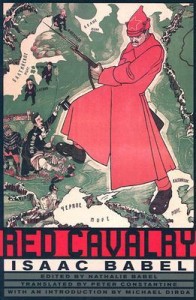He uses simple similes, often about natural phenomena, such as: “Then, like two scissors, they would cut him with their comments and their observations,” “she responded as do tightly reined horses; she stopped short and the bit slipped from her teeth,” “The patch splintered into an infinity of stars and their silvery light seemed to slither all the way down like a headless snake covered with luminous scales,” “On Emma’s satin dress, as white as a ray of moonlight, the watered texture shimmered.” These images turn the tune of the story into a harmony. Even more powerfully he uses similes that are later echoed by other similes or by occurrences or objects. These echoes give importance to seemingly simple parts of the story and bring all instruments of the story together in a symphony.
Flaubert uses rare plants as symbols of Emma and of love. Of Emma, he writes: “She felt that certain places on the earth must produce happiness, just as a plant that languishes everywhere else thrives only in special soil.” Emma sees herself as such a plant and when next she thinks of plants: “Didn’t love, like the Indian plants, need cultivated land, a special temperature?” I understood she is thinking about her own need for special cultivation. Emma blooms at the moment when she is first ready to cast her husband aside: “her continually youthful illusions had nurtured her gradually, as fertilizer, rain, wind, and sunshine nurture a flower, and she finally blossomed forth in all the fullness of her being.” The cactus Léon brings is a rare plant like Emma that dies before they can consummate their love.
Flaubert relates music to strong emotions: “[Emma] felt herself vibrating with all her being, as if violin bows were being drawn over her nerves” and “Her heart filled with the melodious lamentations that were drawn out to the accompaniment of the double basses, like the cries of the drowning amid the tumult of a storm.” In the beginning, Emma is a pianist and at the end she pretends to take up piano again in order to have time to see Léon. Chillingly, the argument that is brought forth to convince Charles Emma should go to piano lessons, is so that she can teach her daughter about music.
Sometimes the similes speak more directly to later actions of the characters: “There were no illusions left now. She had gradually spent them in all the adventures of her soul, in all her successive conditions, in her virginity, in her marriage, and in love; losing them continually as she grew older, like a traveler who leaves part of his money in every inn along the highway.” Of course Emma does eventually in fact also spend her money in the adventures of her soul, first on Rodolphe and then on Léon. The moral connotations of the passage are astounding. Each of the three “successive conditions” is sexual in nature. By referencing the “traveler” who visits “every inn along the highway,” Flaubert is alluding to a likeness between a prostitute and Emma who “visits” by at the very least flirting with every willing man she comes upon. The illusions Emma has “spent” refer to the idea that she can gain a sense of worth through her interactions with men. She starts out as a pretty young thing, men are attracted to her, and it makes her feel special that they take notice. She grasps at the very brief attentions paid her by the marquis and begins to believe she could aspire to his social milieu. While Rodolphe is having a bit of fun, Emma is having a love affair. She again thinks she has found the love of her life when she meets Léon, although for him she becomes a complication. It is Lheureux who ultimately shows Emma exactly what her beauty is worth. She can prostitute herself to pay off her debt, but he will offer her no sweet words beforehand. She finally sees herself as a commodity and starts to realize that her “love affairs” are in fact the object of ridicule. She has spent her reputation along with her fortune and she is ruined financially as well as idealistically. Her last illusion spent, Emma takes her own life.
Also regarding actions of the characters, Flaubert makes a great deal about people watching situations from the outside: “[Mother Bovary] observed her son’s unhappiness with a sad silence like a ruined person who watches, through the windowpanes, people sitting around the table of his former home.” When the Bovarys are at the ball at Vaubyessard, Emma sees “some peasants, their faces pressed to the window, staring at her from the garden.” The simile introduces an idea that is carried throughout the book as Emma strives for a life that is other than hers, a pursuit that leads to her ultimate ruin.
From houses: “He felt sad, like an abandoned house,” “her life was as cold as an attic with northern exposure,” to eyes: “Her eyes, filled with tears, sparkled like flames under water,” “her eyes were beginning to disappear under a viscous pallor, as if spiders had spun a web over them,” to horse hoofs: “In the dim light of the studio the white dust flew off from his tool like a shower of sparks beneath the hooves of a galloping horse,” “[he] remounted his nag, whose feet struck fire as it flew off,” Flaubert revisits images throughout Madame Bovary. Each time he addresses the subject, he adds a layer of nuance to the image, a melody to the harmony, and reminds me of where the characters have been and how that speaks to where they are.
Obviously, Flaubert’s language is beautiful and I’d love to emulate it in my own writing. Not every simile recurs, but they all enhance my understanding of the novel. Several similes surprised me with the obscurity of the comparison, but those were the strongest because the items compared were in fact alike. In my own work, I tend toward metaphor rather than simile, but the lesson I can take from Flaubert is how carefully placed these images are and how strong they can be if they recur “naturally” throughout the novel.
If this review made you want to read the book, pick up a copy of Madame Bovary from Bookshop.org. Your purchase keeps indie booksellers in business and I receive a commission.

